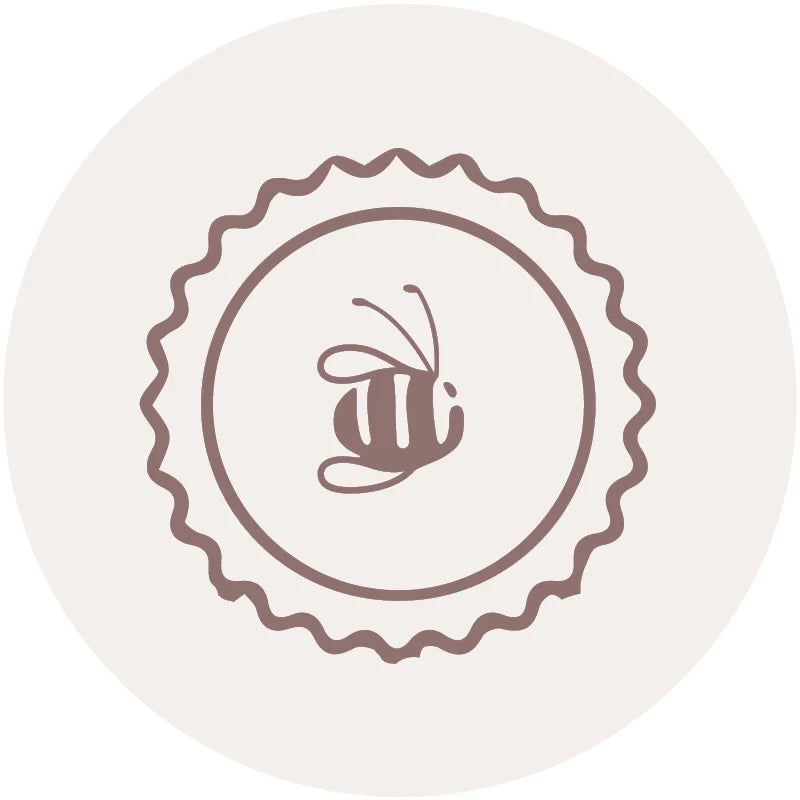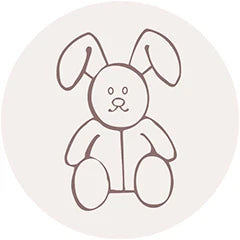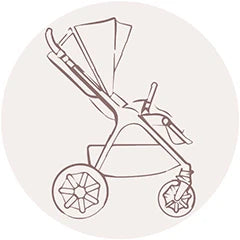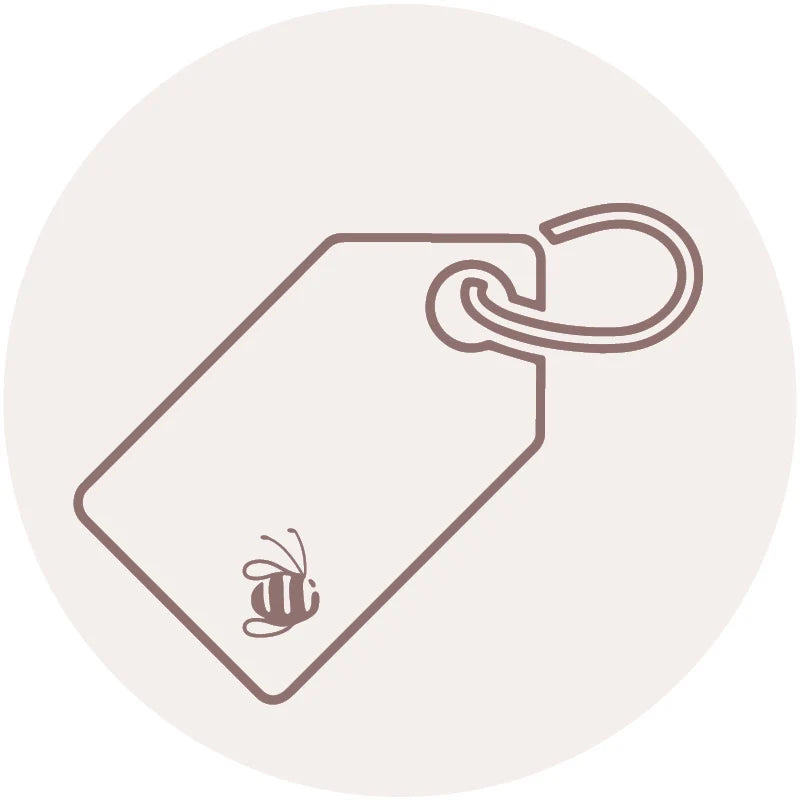Overnight Hydration Gloves
Overnight Hydration Gloves
SKU:PAUME07
Clothing Prem to 18 Months
| Size | Age Guide | Weight | Height |
|---|---|---|---|
| Premature | Premature or Small Newborn | Up to 4Kg | Up to 55cm |
| Newborn | 0-3 months | 4-6Kg | Up to 62cm |
| 3 Month | 3-6 months | 6-8Kg | Up to 68cm |
| 6 Month | 6-12 Month | 8-10Kg | Up to 76cm |
| 12 Month | 12-18 Month | 10-12Kg | Up to 84cm |
| 18 Month | 18-24 Month | 12-14Kg | Up to 92cm |
Clothing 2 to 6 Years
| Size | Age Guide | Height | Chest | Waist | Hip |
|---|---|---|---|---|---|
| 2 Year | 2-3 Years | Up to 100 cm | 56 | 51 | 58 |
| 3 Year | 3-4 Years | Up to 105 cm | 58 | 53 | 60 |
| 4 Year | 4-5 Years | Up to 110 cm | 60 | 55 | 62 |
| 5 Year | 5-6 Years | Up to 115 cm | 62 | 57 | 64 |
| 6 Year | 6-7 Years | Up to 120 cm | 64 | 59 | 66 |
Beanie Size Guide
| Size | Head Circumference | Age Guide |
|---|---|---|
| Premature | 31-35 cm | Premature or Small Newborn |
| Newborn | 35-40 cm | Newborn |
| Small | 40-43 cm | 3-6 Months |
| Medium | 43-47 cm | 6-18 Months |
| Large | 47-52 cm | 18-3 Years |
Sunhat Size Guide
| Size | Head Circumference | Age Guide |
|---|---|---|
| Newborn | 37-40 cm | Newborn |
| Small | 40-43 cm | 3-6 Months |
| Medium | 43-46 cm | 6-12 Months |
| Large | 46-49 cm | 12-24 Months |
| Xtra Large | 49-54 cm | 2-4 Years |
Sleep Pods Size Guide
| Size | Weight | Age Guide | Measurement(Back to Hem) |
|---|---|---|---|
| Newborn | 0-6 kgs | 0-3 Months | 60.5 cm |
| Small | 0-8 kgs | 3-6 Months | 66 cm |
Booties Size Guide
| Size | Age Guide |
|---|---|
| Newborn | 0-3 Months |
| Small | 3-6 Months |
| Medium | 6-12 Months |
| Large | 12-18 Months |
Pretty Brave Baby
| Foot Length (mm) | Insole Length (mm) | EU | UK | Age | INT |
|---|---|---|---|---|---|
| 95-104 | 110 | 16/17 | 2 | 0-6m | S |
| 104-114 | 118 | 18 | 3 | 6-12m | M |
| 114-123 | 127 | 19/20 | 4.5 | 12-18m | L |
| 123-137 | 142 | 21/22 | 5.5 | 16-22m | XL |
Pretty Brave 1st Walker
| Foot Length (mm) | Insole Length (mm) | EU | UK | Age |
|---|---|---|---|---|
| 114-120 | 125-128 | 19 | 3 | 1 yr |
| 120-126 | 132-135 | 20 | 3.5 | 1-2 yrs |
| 126-132 | 138.5-141.5 | 21 | 4.5 | 1-2 yrs |
| 132-138 | 145-148.5 | 22 | 5 | 2 yrs |
Crywolf Swim Nappy
| Size | Length (waist to crotch) | Crotch Width (side to side) |
|---|---|---|
| 0-1 yr | 1-2 yrs | |
| 37 | 38 | |
| 14.5 | 15.5 |
Crywolf Rash Suit
| Size | Length (back neck to crotch) | Chest (arm to arm) | Waist (side to side) | Sleeve (neck to cuff) | Neck Opening(diameter) |
|---|---|---|---|---|---|
| 6-12 Months | 1 yr | 2 yrs | 3 yrs | ||
| 40 | 42 | 44 | 46 | ||
| 25 | 26 | 27 | 28 | ||
| 24 | 25 | 26 | 27 | ||
| 30 | 31.5 | 33 | 34.5 | ||
| 13.25 | 13.25 | 13.8 | 14.3 |
In stock
Couldn't load pickup availability
Overview
Overview
These overnight gloves, made from 100% organic cotton, enhance the moisturizing effects of the Paume Probiotic Hand Balm or Hydration Mask while you sleep, leaving your hands feeling soft, hydrated, and rejuvenated.
Treatment Instructions:
Apply a generous amount of Probiotic Hand Balm to your hands, fingers, and nails.
Put on the gloves and wear them overnight.
Remove the gloves in the morning to reveal nourished, smooth hands.
Key Features
Key Features
Technical Specification
Technical Specification
Delivery and Returns
Delivery and Returns
- Delivery: Free within NZ on orders over $100 (excluding bulky items) or $8 standard shipping
- Returns: Accepted within 14 days of receipt with proof of purchase
- Some items are excluded from returns including sale items, hardware, car seats, prams, monitors and personal items - please click here for the full list.
Share this product
Recently Viewed Products
Related Blogs
Cradle Cap: Everything you need to know
Learn How to Combat Cradle Cap Becoming a new parent is a time filled with pure love and joy, but it can also come with moments of worry. It’s completely natural to stay up late, carefully listening to every sound or noticing every little skin change, wondering if it’s something to be concerned about. One common worry for new parents is cradle cap. The good news? It’s harmless and often clears up on its own, or with a bit of help. Let’s take a look at what cradle cap is, how to treat it, and when to reach out to your doctor if needed. What Is Cradle Cap? Cradle cap, also known as infantile seborrheic dermatitis, is a non-inflammatory skin condition that often appears in the first few months of life. It causes scaly patches on your baby’s scalp, which can be yellow or white. Though it may look uncomfortable, cradle cap isn’t painful, itchy, or a cause for concern. It’s not contagious and does not indicate poor hygiene. Why Does Cradle Cap Happen? Doctors aren’t entirely sure why babies develop cradle cap, and say it’s not preventable. Some suggest it might be related to hormones passed from mum to baby before birth, which can cause sebaceous glands to become overactive. This leads to the oily, thick scales that form on the scalp. Cradle cap typically clears up by the time your baby reaches 6 to 12 months. Top Tips for Treating Cradle Cap 1. Use a nourishing oil Before washing, apply a baby-safe oil to loosen flakes and nourish the scalp - we love Cradle Cap Fighter for this. Let it soak for at least an hour if you can. 2. Be gentleDon’t be tempted to pick or scratch - this will avoid any infection or irritation. 3. Loosen flakes gentlyUse a soft brush or fine-toothed comb to lift the softened flakes, taking gentle care. We love the Shnuggle Baby Brush for this bit. Brush gently in a slow circular motion without scrubbing. 4. Rinse wellApply a gentle baby shampoo to remove all oil residue, and then rinse the scalp very well to prevent product build-up or irritation. 5. Wash regularlyClean your baby’s scalp daily. You can repeat these steps as many times as you need to, but always be gentle. With consistent care, the flakes will gradually lift and clear. 6. Try a medicated shampoo (if needed)If the cradle cap doesn’t improve, check with your GP about using a medicated baby shampoo designed for sensitive skin. 7. Keep skin hydratedUsing a humidifier in your baby’s room can help prevent dryness and support overall skin health. 8. Know when to seek adviceCradle cap usually resolves on its own, but if it becomes inflamed, persists for several months, or spreads - consult your doctor for tailored treatment options. Cradle Cap Is Harmless and Temporary Cradle cap can be concerning for new parents, but rest assured, it’s a harmless and temporary condition. With gentle care and the right treatment, you can help soothe your baby’s scalp, and let them grow into their beautiful hair.
Learn moreHow to Choose a Cot Mattress
It’s fun to think about decorating the nursery and choosing cute outfits for your little one to come. But what about the mattress? Choosing a cot mattress is a big deal (especially when they can spend up to 16 hours a day sleeping), but it’s so often overlooked when planning the nursery.
Learn moreBaby Comforters: What Are They, and How To Introduce Them
There’s something very special about watching your baby snuggle into their favourite little blanket or soft toy. For many little ones, a comforter (or blankie) becomes more than just a bedtime accessory - it’s a trusted friend that brings a sense of calm and reassurance through every new stage of growing up.
Learn moreNewborns & Sleep: What to Expect and Survival Tips
Bringing a new baby home is one of life’s most beautiful - and exhausting - adventures. In this blog, Family Sleep & Wellness Coach, Lauren Moran from Little Dreamers, shares her expert advice on newborn sleep in the fourth trimester.
Learn more









